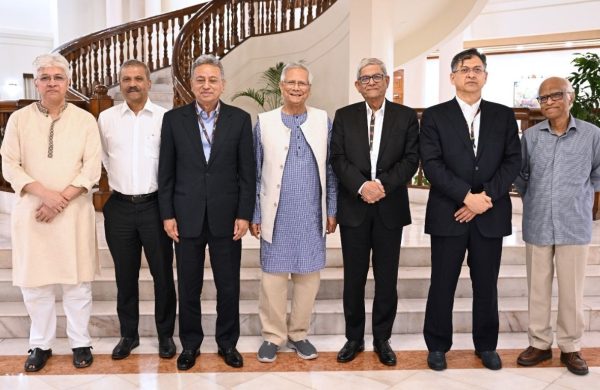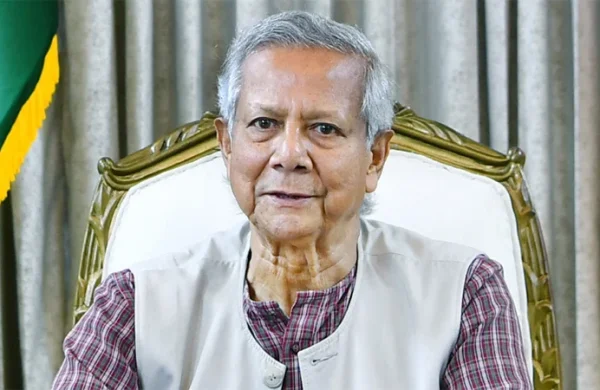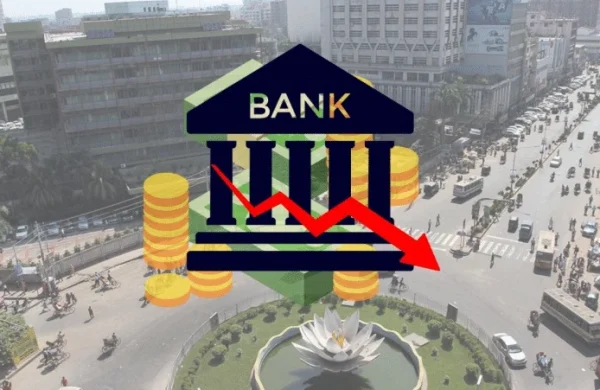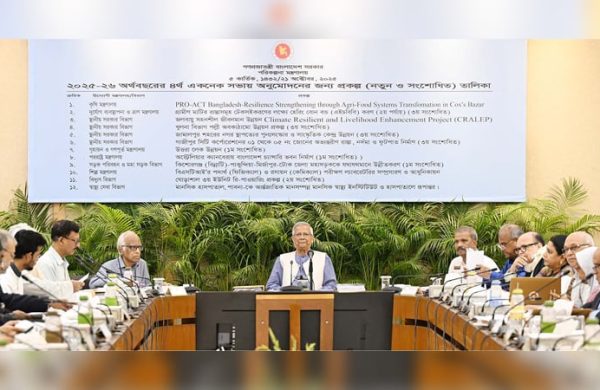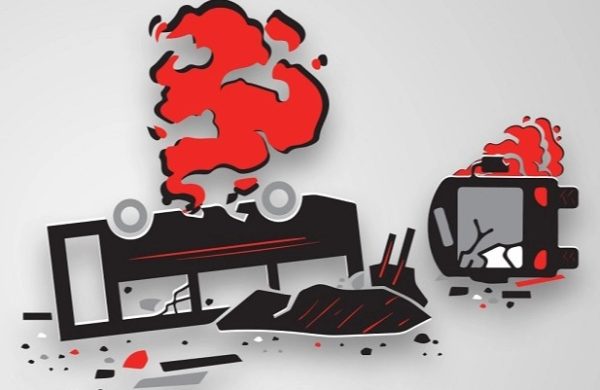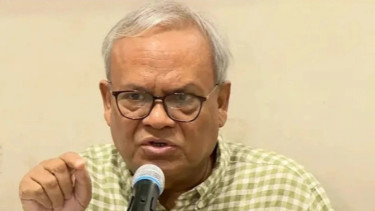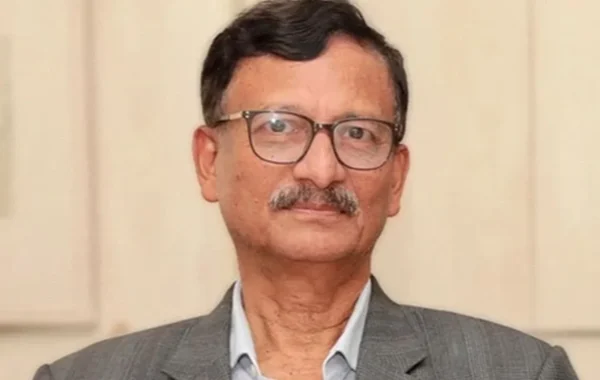Govt pours Tk 200bn into water in name of civil servant training
- Update Time : Tuesday, October 21, 2025

TDS Desk:
The government regularly arranges training programs to enhance the skills of its employees. However, there have been repeated allegations over the years of irregularities such as collecting honorariums and allowances without completing the training, forging signatures to claim funds, misappropriating funds under the guise of overseas training, and inflating the number of participants to embezzle additional funds. According to data from the Finance Division, nearly BDT 200 billion has been spent from the national budget over the past decade on training government employees. Yet analysts say the benefits of this massive expenditure remain largely invisible.
Finance Division records show that from FY 2016–17 to FY 2023–24, a total of BDT 193.38 billion was spent on civil servant training. Of this, BDT 13.83 billion was spent in FY 2016–17, BDT 17.93 billion in FY 2017–18, BDT 26.56 billion in FY 2018–19, BDT 23.26 billion in FY 2019–20, BDT 17.86 billion in FY 2020–21, BDT 29.69 billion in FY 2021–22, BDT 24.66 billion in FY 2022–23, and BDT 39.59 billion in FY 2023–24.
In the revised budget for FY 2024–25, the government allocated BDT 36.25 billion for training. Although sector-wise expenditure data for that fiscal year have not yet been published, officials estimate that at least BDT 30 billion was spent on training during that period. For the current FY 2025–26, the budget allocation for training stands at BDT 41 billion. Altogether, over the past decade, at least BDT 220 billion has been spent on training government employees.
Allegations of corruption surrounding these training programs have persisted for years. An audit report by the Office of the Comptroller and Auditor General (CAG) found that the Civil Aviation Academy under the Civil Aviation Authority of Bangladesh (CAAB) in Dhaka showed expenditure on instructor and trainee allowances for FY 2020–21, even though the training activities were never conducted.
Meanwhile, the Anti-Corruption Commission (ACC) has recently launched an investigation into former Chief Election Commissioner KM Nurul Huda, several members of his commission, and other officials over allegations of misuse of public funds for training programs during the 11th parliamentary and fifth upazila elections.
Despite the government spending vast sums on employee training, public dissatisfaction with government services remains widespread. A public opinion survey conducted by the Public Administration Reform Commission (PARC) under the Interim Government reflected the same concern. The survey gathered opinions from 150,000 people regarding services in public health, police, land, tax offices, municipalities, city corporations, electricity, gas, water bills, and health care. Analysis of the responses revealed numerous complaints regarding these services. According to the survey, every respondent expressed dissatisfaction with public health services. Half of the participants said police services could not be accessed without bribery or corruption. Eighty-four percent supported public administration reform, while 80 percent felt the existing administrative system was not people-friendly. Furthermore, nearly 66.4 percent of respondents said government employees behave like rulers toward citizens. Ninety-six percent believed the public administration lacks transparency and accountability, and 42 percent identified corruption as the root cause of all problems. Against this backdrop of widespread public complaints, questions have arisen about whether the billions spent on government employee training have delivered any meaningful results.
Commenting on the issue, Dr. Zahid Hussain, former lead economist at the World Bank’s Dhaka office, told journalists, “The services we receive from government employees can be viewed from two perspectives. One involves routine citizen services — such as passport offices, BRTA, roads, courts, and various licensing offices — where the public directly interacts with officials. In these areas, we routinely encounter both harassment and corruption. The other involves services through project implementation, where even the best-managed projects are often delayed and cost more than planned. So, the impact of training on government employees is not visibly reflected in either area.”
Dr. Hussain further noted that, beyond training, it is common practice to pay officials honorariums for attending workshops and committee meetings. “In the context of the reform expectations that have emerged after the July uprising, it’s time to reconsider spending beyond regular salaries and allowances. It should be reviewed how much these trainings have truly improved employees’ skills and what tangible benefits the state and the public have gained. The time has come to decide whether such programs should continue as before or shift toward a performance-based model,” he said.
Another major weakness in government training programs is that officials typically receive training related to their current ministries, departments, or agencies. However, many are soon transferred to different offices after completing the training. As a result, they rarely get the chance to apply the knowledge they acquire. Experts believe this is one of the main reasons the training programs have not produced the expected outcomes.
The issue of limited skills among public employees and frequent transfers has also been highlighted in a report by the International Monetary Fund (IMF). In its 2023 technical assessment, the IMF pointed out the lack of competence among Finance Division officials and recommended reducing the frequency of transfers to improve institutional efficiency.
Cabinet Secretary Dr. Sheikh Abdur Rashid told journalists, “We have around 900,000 to 1 million employees. Considering that, the amount of money spent is not too large. I can’t say exactly how much improvement has been made in terms of skills. But I can say that without training, the situation would have been worse. Without structured activities or basic training, government employees wouldn’t understand how to perform their duties.”
Regarding frequent transfers of officials soon after receiving training, he said, “It wouldn’t be right to say that training has no value. Even if someone doesn’t stay long in the same post after training, the skills remain. There are many cross-cutting activities where those skills are useful. Still, it’s better if trained officials can remain in relevant positions for some time.”
There have been instances of fund misappropriation under the guise of overseas training, fraudulent signatures to claim training allowances, and even false claims of training during the COVID-19 lockdown period. Some officials have also participated in training programs just before retirement.
Under the “Strengthening Government through Capacity Development of the BCS Cadre officials Project,” a total of 30 senior secretaries and secretaries were nominated for overseas refresher training during FY 2020–21 and FY 2021–22. Several of them could not join the programs on schedule and were nominated again the following fiscal year. However, some were due to retire either the month before or after the training. Following public criticism, the government eventually canceled the foreign training orders for nine of those secretaries.
A recent example of overseas training involves three officials from the Local Government Division and Dhaka South City Corporation (DSCC) preparing for an upcoming visit to China. The officials are scheduled to participate in training on the operation and maintenance of five new mobile VIP toilets supplied to the city. The trip will take place from October 27 to November 2, or for seven days starting from the beginning of the holiday period. No government funds will be used for the trip; all expenses will be covered by the manufacturing company, Shandong Quanbai Intelligent Manufacturing Company Limited. Although the Chief Adviser’s office has instructed avoiding foreign travel funded by contractors or suppliers, this guideline is not being applied in this case.
Dr. Sadik Hasan, a professor in the Department of Public Administration at the University of Dhaka (DU), told journalists, “Training is an integral part of a government employee’s job. It happens at both domestic and international levels. However, our officials are often more eager to attend overseas training. We never get to know what they actually do there or how they apply it afterward. If the training cannot be applied in the office afterward, the entire program goes to waste.”
He added, “If an employee retires shortly after training, it never benefits the country. While the knowledge gained from such training may not serve the state, it can serve personal interests. Both the official attending the training and the authority approving it are aware of this. In other words, the person giving permission cannot absolve themselves of responsibility for such activities.”
This reporter spoke with several senior officials from a number of ministries about government employee training programs. None agreed to be named, but they shared several observations. According to them, training programs are often conducted with minimal seriousness. In many cases, the trainees themselves are more qualified than the trainers. Naturally, the outcomes of such training are predictable. In these situations, employees prioritize the financial benefits of stipends and honoraria over skill development.
Meanwhile, the Finance Ministry has recently increased training stipends and honoraria for government employees, which will further raise government spending. In a circular issued on September 18, the ministry revised the daily training allowance for participants in courses organized by all government institutions under various ministries and departments. Earlier, on August 14, another circular had revised honoraria and training allowances for instructors of subject-specific internal training. Under the new rates, joint secretaries and higher-level employees will receive BDT 3,600 for one hour of subject-specific internal training, up from BDT 2,500. Fourth- and fifth-grade employees, or deputy secretaries and lower-level staff, previously received BDT 2,000, and will now receive BDT 3,000. Previously, employees from grade 9 and above received a daily training allowance of BDT 600, which has been increased to BDT 1,200. For employees below grade 10, the daily allowance has been raised from BDT 500 to BDT 1,000. Similarly, course directors’ honoraria have increased from BDT 1,500 to BDT 2,000 per day, course coordinators’ from BDT 1,200 to BDT 1,500, and support staff from BDT 500 to BDT 1,000.



